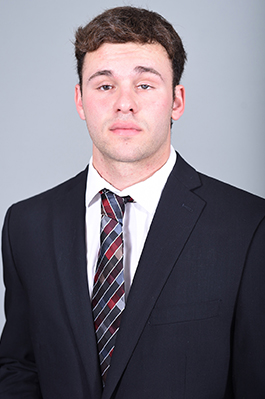Disabled athlete overcomes obstacles to play football
December 11, 2015
Aaron Golub is a college student and athlete at Tulane University. While he may appear to be a typical football player, there is something that sets Golub apart from the others.
The sophomore long snapper is legally blind, yet he is still able to perform at a high level for the Green Wave. Golub’s passion for the game was always there in spite of this obstacle.
“I just always loved watching it and playing different sports. Watching my whole life, I just wanted to play and get involved,” Golub said.
While in high school, Golub was a two-year letterman for Newton South High. According to 247sports.com, he is also ranked 18th in the nation at the long snapper position.
Golub said that even with his love for football, it wasn’t always easy for him to excel on the field.
“It was a challenge at first to start, but I put in a lot of hard work and dedication to be effective for the team,” Golub said.
His hard work and dedication to the sport is one of the many things that attracted Doug Lichtenberger, special teams coach, to Golub.
“We talked to a couple of coaches and people around that worked with him. He has put more into it than a lot of our own guys. It was a no-brainer situation for us to add him to the program. He’s a quality young man,” Lichtenberger said.
Golub is one of a handful of athletes battling disabilities and competing at the Division I level. In the article, “Stigma Management Through Participation in Sport and Physical Activity,” Diane Taub, sociology professor at Southern Illinois University at Carbondale, points out that disabled students who participate in sports often produce at the same, if not greater, levels than students without physical disabilities.
According to Taub, disabled students participating in athletics help manage the stigma that comes with dealing with a disabled body.
Dawna Callahan, director of programs for the Challenged Athletes Foundation and a four-time Boston Marathon finisher, believes that it is the foundation’s mission to help disabled athletes thrive.
“Physical activity and sports has such a profound affect on one’s mental and physical health, which we believe everyone of all ages and abilities should have the opportunity to experience,”Callahan said.
While there are foundations and programs available for athletes with disabilities, Golub is still in the minority in terms of blind athletes who will take part in athletics.
According to disabledeworld.com, only 12 percent of people who have visual impairments will participate in a sport.
Still, Golub believes that the drive for an athlete to excel in his respective sport is the same. Whether an athlete is dealing with a physical disability or not, you always want to be successful at any level.
“I think that everyone who plays a sport wants to be the best that they can be. Everyone wants to be a high ranked player and perform well. I wouldn’t say that it’s more rewarding than someone else who is equally as good,” Golub said.
Golub also said that it ultimately comes down to the intangibles rather than the physical aspect that defines a great athlete.
“Just keep working. If you are dedicated and work hard enough you can accomplish anything,” Golub said.







